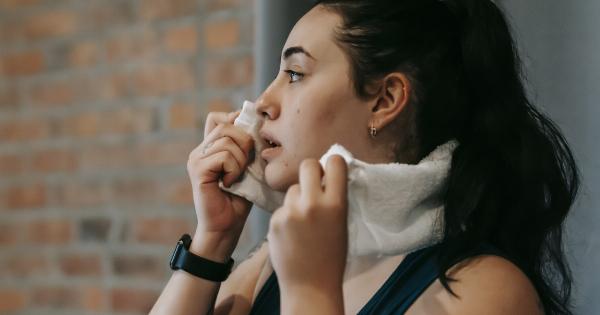Viruses and germs are everywhere around us, and they can pose a significant threat to our health and wellbeing.
In recent times, with the global pandemic caused by the novel coronavirus (COVID-19), the need to combat viruses and germs has become even more critical. In this article, we will explore some effective tips and techniques to help you protect yourself and others from these microscopic invaders.
1. Clean Your Hands Frequently
One of the simplest yet most effective ways to combat viruses and germs is by maintaining proper hand hygiene. Washing your hands frequently with soap and water for at least 20 seconds can help remove dirt, germs, and viruses from your hands.
If soap and water are not readily available, using an alcohol-based hand sanitizer with at least 60% alcohol content can also be effective.
2. Practice Respiratory Etiquette
Viruses and germs can spread through respiratory droplets when an infected person coughs, sneezes, or talks. To prevent the transmission of these droplets, it is essential to follow respiratory etiquette.
Cover your mouth and nose with a tissue or the inside of your elbow when coughing or sneezing. Dispose of used tissues properly and wash your hands immediately afterward.
3. Avoid Touching Your Face
Our faces act as entry points for viruses and germs. Touching our eyes, nose, and mouth with contaminated hands can lead to infection. Therefore, it is crucial to avoid touching your face unless you have washed or sanitized your hands thoroughly.
4. Maintain Physical Distancing
Physical distancing, also known as social distancing, plays a significant role in preventing the spread of viruses and germs.
By maintaining a distance of at least 6 feet (2 meters) from others, especially in crowded places or when someone is coughing or sneezing, you can reduce the risk of inhaling respiratory droplets carrying the viruses.
5. Wear a Mask
Wearing a mask can act as a barrier against respiratory droplets and help in preventing the spread of viruses. It is especially important to wear a mask in public settings where maintaining physical distancing might be challenging.
Ensure that the mask covers your nose, mouth, and chin properly and avoid touching it while wearing or removing.
6. Clean and Disinfect High-Touch Surfaces
Viruses and germs can survive on surfaces for varying durations.
Regularly cleaning and disinfecting high-touch surfaces such as doorknobs, light switches, countertops, and electronic devices can help eliminate these pathogens and reduce the risk of transmission. Use cleaners and disinfectants approved by relevant health authorities for maximum efficacy.
7. Practice Good Respiratory Hygiene at Home
It is essential to follow good respiratory hygiene practices even within the confines of your home. Encourage family members to cover their mouths and noses while coughing or sneezing, and promptly dispose of used tissues in a lined trash can.
Have a supply of tissues and hand sanitizers readily available throughout your living space.
8. Boost Your Immune System
A strong immune system can help combat viruses and germs more effectively. Focus on maintaining a healthy lifestyle by eating a balanced diet, getting regular exercise, managing stress, and getting enough sleep.
Additionally, consider incorporating immunity-boosting foods such as fruits, vegetables, and probiotics into your diet to strengthen your body’s natural defenses.
9. Stay Hydrated
Drinking an adequate amount of water is essential for maintaining overall health and supporting your body’s immune system function.
Water helps flush out toxins from your body and keeps your mucous membranes moist, preventing viruses and germs from entering your body through those pathways.
10. Stay Informed
Stay updated with reliable sources of information regarding viruses and germs.
Follow guidelines and recommendations provided by reputable health organizations such as the World Health Organization (WHO) and the Centers for Disease Control and Prevention (CDC). Being informed will help you make educated decisions to protect yourself and your loved ones.
Conclusion
Combatting viruses and germs requires a multi-faceted approach. By implementing these tips and techniques into your daily routine, you can significantly reduce the risk of infection and protect yourself and those around you.
Remember, prevention is always better than cure, and maintaining good hygiene practices and following expert advice can go a long way in safeguarding your health.





























